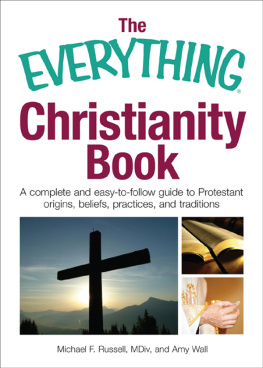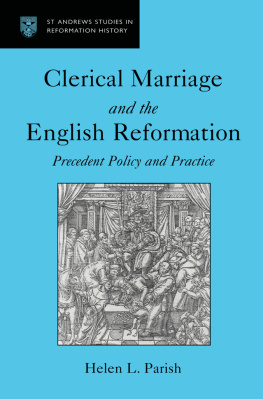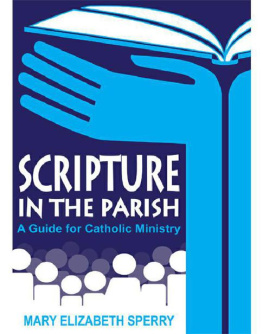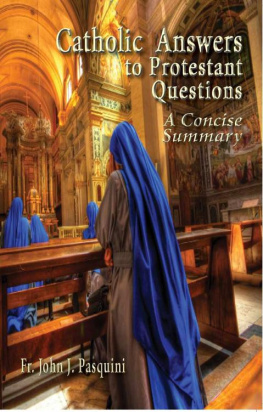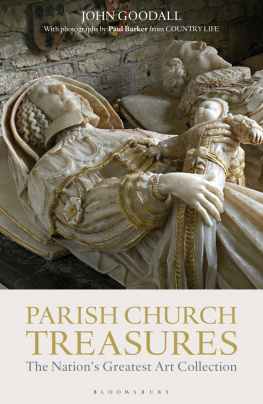The Connection between the Theology of the Word of God and the Moral Leadership of the Church in Wilhelmine Germany
There are only two possibilities here: either the Gospel is in all respects identical with its earliest form, in which case it came with its time and has departed with it; or else it contains something which, under differing historical forms, is of permanent validity. The latter is the true view.
Adolf Harnack, What Is Christianity?
On July 23, 1900, leaders of the parish in the Brandenburg village of Neu-Trebbin wrote to the provinces church-governing consistory. In the letter, they asked for the appointment of an appropriate man to follow [their long-standing retired pastor], who is a proper messenger of the Gospel, who speaks from Gods truth and love and who presides over us in godly peace. The congregation had already found the pastor of its choice, vicar and interim pastor Max Lindenberg from Rossleben in Thringen. However, their petition to the consistory was surprising. Why would a church need to ask specifically for a pastor who was a proper messenger of the Gospel? Every Protestant pastor swore an oath to teach the gospel at his ordination. Yet their request for such a pastor was deliberate, and the consistory would understand the full meaning of it. In the opinion of the congregation of Neu-Trebbin, some clergy no longer preached the gospel of Christ. Only a certain sort of pastor would be acceptable in the parish. The theological landscape in Germany at the turn of the twentieth century was marked by over sixty years of ideological battle. The very essence of Protestant Christianity was under question, so much so that a rural congregation felt it necessary to specify to the highest church leaders in the land their desire for a pastor who spoke Gods truth and love.
Alongside these passions for right theological guidance lay other factors that complicated the situation. The parishioners of the rural Neu-Trebbin parish needed to submit their petition to Berlin, the capital and largest city of the sprawling empire. A difference in education separated the elders of the country church of Neu-Trebbin and the university-trained members of the consistory of the state church of Brandenburg. In their petition, the parishioners were asking the leadership of the church to bend the rules. Lindenberg was not yet fully ordained in the church. He still needed to complete the second theological examination required of all full pastors. Despite these differences and Lindenbergs inexperience, the congregation leaders of Neu-Trebbin implored their superiors to not esteem the ecclesiastical rules more than the preservation and advancement of Christianity and the worship of the church (Kirchlichkeit) here.
Members of the congregation of Neu-Trebbin were thankful for the interim pastor they had. They were also deeply concerned about what might happen if his time in Neu-Trebbin were not extended. If their request were not granted, they might receive a new pastor who had passed all the formalities of official ordination into the state church but did not feed their religious fervor. They feared having a new pastor who would undermine their most cherished beliefs. They worried that such a new spiritual leader would impose an outside piety on their congregation.
Adolf Stoecker, Martin Khler, Adolf Schlatter, and Christoph Blumhardt: Offering a New Path for an Old Belief to Guide Germany into the Twentieth Century
Adolf Stoecker (18351909), Martin Khler (18351912), Adolf Schlatter (18521938), and Christoph Blumhardt (18421919) were four representatives of a new, self-conscious body of believing church leaders who understood the pious Protestantism of congregations like Neu-Trebbin. While Stoecker sought to give churches like Neu-Trebbin the opportunity to voice their concern about new theology from the pulpit, the other three sought to span the anxious tensions that pulled apart the rural, simpler adherence to the traditional doctrines of historic Protestantism and the critical biblical research that excited a new urban, educated perspective on Jesus and his teachings. These latter three leaders created an explicitly modern theology that both affirmed the long-standing beliefs of Protestantism and adopted some of the methods and interpretations of the newest research. As they understood it, all that separated these two groups was their understanding of biblical authority. They squared the circle of the competing visions of the Bible for the modern faithful. Khlers, Schlatters, and Blumhardts key to coordinating these two often antagonistic ideas was to reappraise the way the Bible was the continuing authority for the Protestant church. They believed that the Bibles character as the word of Godthat is, its revelation of God in human historywas the means by which the Bible would continue to be the foundation for Protestant belief, but its historical nature permitted the critical research of its origins and meanings.




